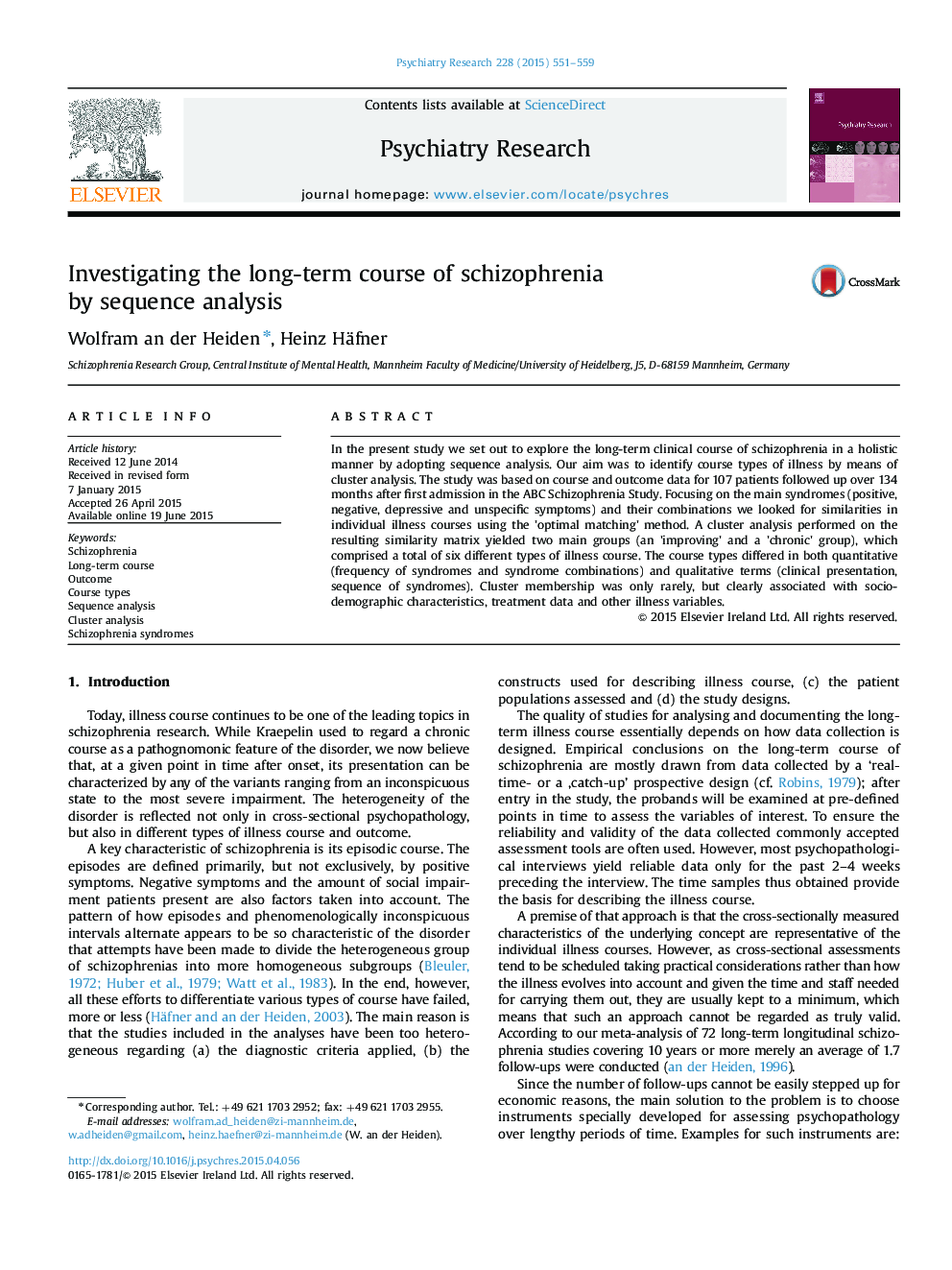| Article ID | Journal | Published Year | Pages | File Type |
|---|---|---|---|---|
| 10303708 | Psychiatry Research | 2015 | 9 Pages |
Abstract
In the present study we set out to explore the long-term clinical course of schizophrenia in a holistic manner by adopting sequence analysis. Our aim was to identify course types of illness by means of cluster analysis. The study was based on course and outcome data for 107 patients followed up over 134 months after first admission in the ABC Schizophrenia Study. Focusing on the main syndromes (positive, negative, depressive and unspecific symptoms) and their combinations we looked for similarities in individual illness courses using the ׳optimal matching׳ method. A cluster analysis performed on the resulting similarity matrix yielded two main groups (an ׳improving׳ and a ׳chronic׳ group), which comprised a total of six different types of illness course. The course types differed in both quantitative (frequency of syndromes and syndrome combinations) and qualitative terms (clinical presentation, sequence of syndromes). Cluster membership was only rarely, but clearly associated with sociodemographic characteristics, treatment data and other illness variables.
Related Topics
Life Sciences
Neuroscience
Biological Psychiatry
Authors
Wolfram an der Heiden, Heinz Häfner,
